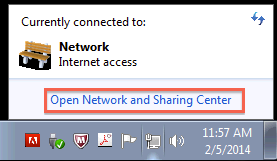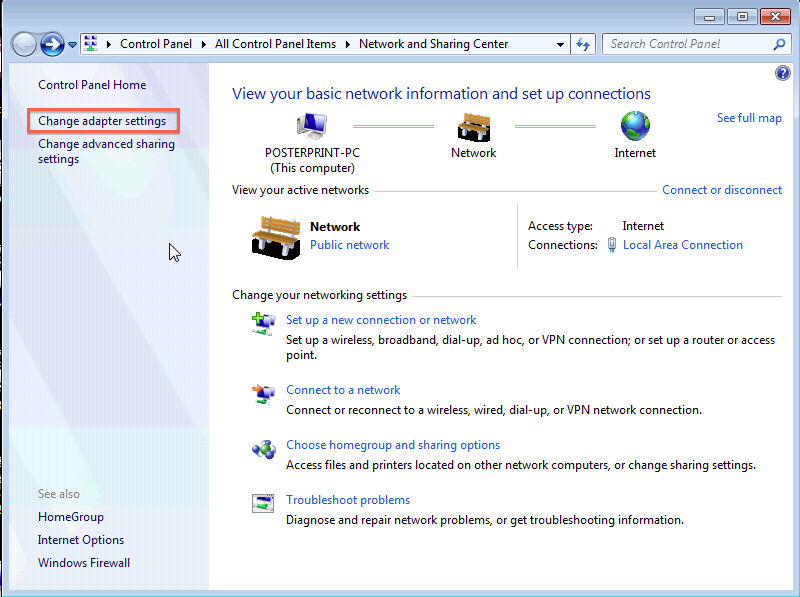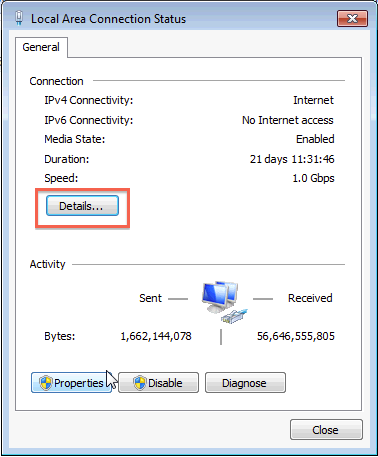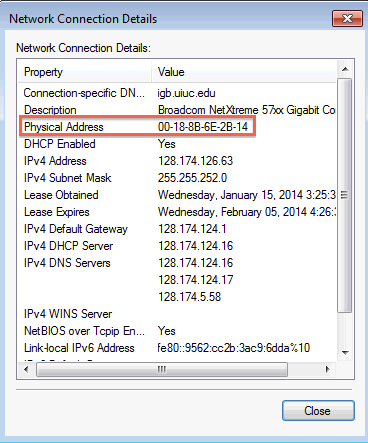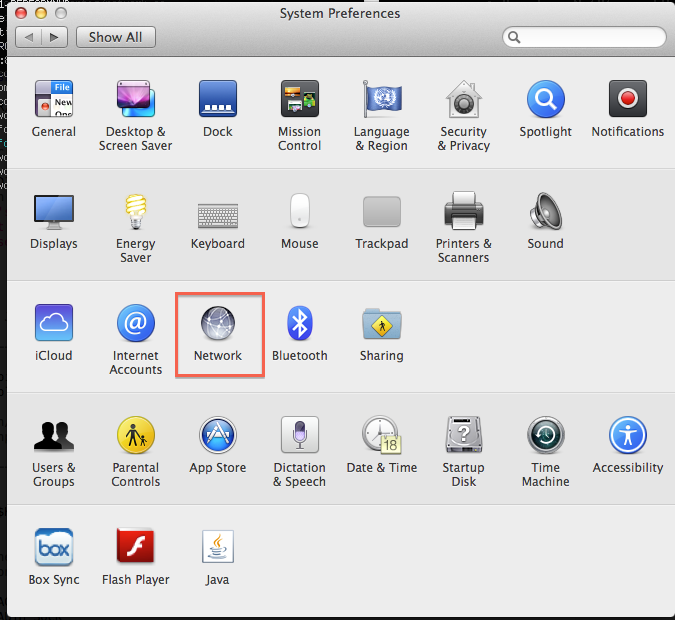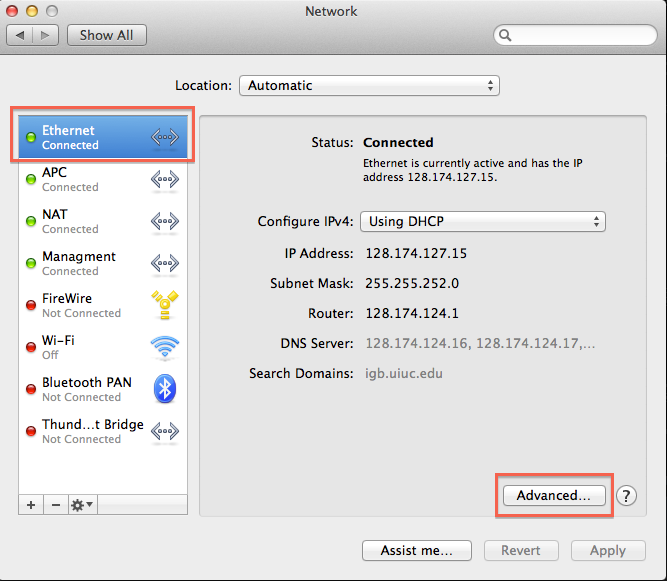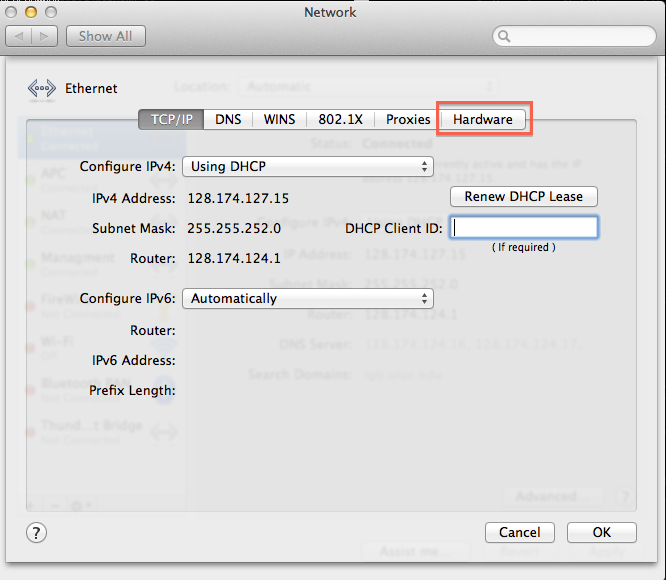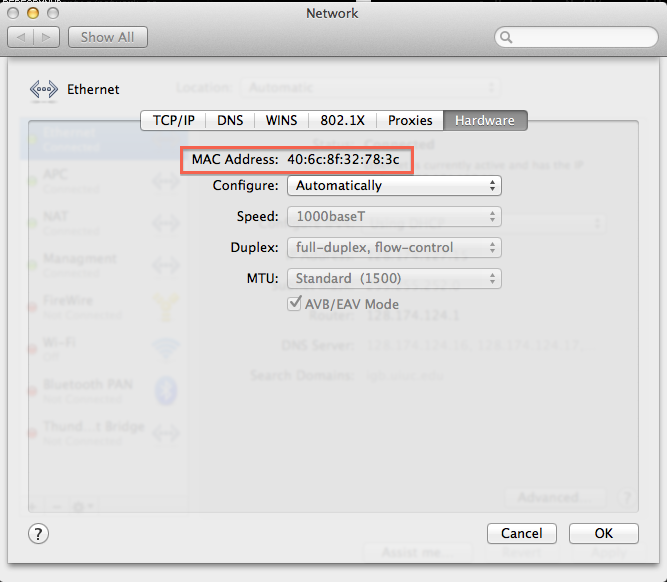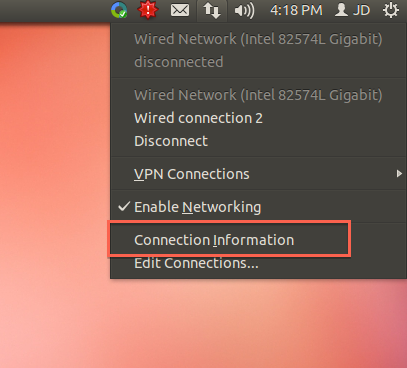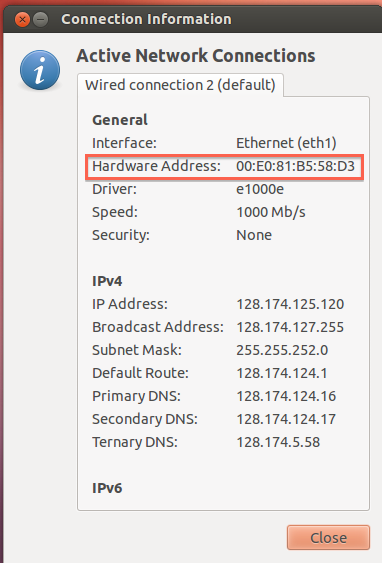Hardware Address: Difference between revisions
Jump to navigation
Jump to search
No edit summary |
No edit summary |
||
| Line 64: | Line 64: | ||
*In the window that pops up will be a "Support" tab, click on it | *In the window that pops up will be a "Support" tab, click on it | ||
[[File:WindowsXP 2.png]] | [[File:WindowsXP 2.png|200px]] | ||
*Click on "Details" | *Click on "Details" | ||
| Line 74: | Line 74: | ||
[[File:WindowsXP 4.png]] | [[File:WindowsXP 4.png]] | ||
</div> | </div> | ||
</div> | |||
<div class="toccolours mw-collapsible mw-collapsed" style="width:900px"> | <div class="toccolours mw-collapsible mw-collapsed" style="width:900px"></div> | ||
=== OS X === | === OS X === | ||
<div class="mw-collapsible-content"> | <div class="mw-collapsible-content"> | ||
Revision as of 10:35, 17 February 2014
How to Find Hardware Address
- make sure your Ethernet cable is plugged in while completing these steps
- Hardware address can also be referred to as Mac Address or Physical Address
- Use the steps from the appropriate section below to find your computer's Mac Address,
- Once you have found it, enter into the field in the form. Please leave out hyphens and colons.
Windows 7
Windows 8
- On the tile screen, select the desktop tile
- In the lower right corner, right click on the network icon and choose "Open Network and Sharing Center"
- In the left column, choose "Change Adapter Settings"
- Select the Ethernet Connection
- Click on "Details"
- The MAC Address is the "Physical Address" listed in the table
Windows XP
- Click on the network icon in the lower right hand corner
- In the window that pops up will be a "Support" tab, click on it
- Click on "Details"
- The MAC Address is the Physical Address listed at the top
</div>
